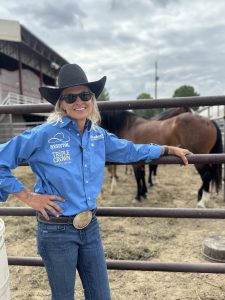Senate faces USDA, CFTC, FAO nomination issues
| The Senate faces a series of issues surrounding President Trump’s nominations for positions at the Agriculture Department and the Commodity Futures Trading Commission, while the Senate Foreign Relations Committee has a nominee to be U.S. representative to the Rome-based food and agriculture organizations under consideration. The Senate Agriculture Committee has sent to the full Senate the nominations of: |
| Michael Boren to be undersecretary for natural resources and environment; Richard Fordyce to be undersecretary for farm production and conservation; Dudley Hoskins to be undersecretary for marketing and regulatory programs; Scott Hutchins to be undersecretary for research, education and economics; and Devon Westhill to be assistant secretary for civil rights. |
Glen Smith, a member of the board of the Farm Credit Administration, as undersecretary for rural development;
Mindy Brashears, who served as undersecretary for food safety in the Trump administration, for the same position in this term;
Yvette Herrell, a former Republican House member from New Mexico, as assistant secretary for congressional relations.
The committee has held a hearing on Trump’s nomination of Brian Quintenz to be chairman of the Commodity Futures Trading Commission, but the committee canceled a scheduled vote on his nomination before the August break. The White House asked the committee to delay the vote amid controversies surrounding his nomination.
CFTC Commissioner Kristin Johnson has announced her last day at the commission will be Wednesday, leaving Caroline Pham, the acting chair of the commission, as the only member.
in July, the Senate Foreign Relations Committee held a hearing on Trump’s nomination of Lynda Blanchard to be U.S. representative to the Rome-based United Nations agencies, including the Food and Agriculture Organization and the World Food Program.
On June 30, Michelle Bekkering, the USDA deputy undersecretary for trade and foreign agricultural affairs, told the FAO Conference, “Today, the U.S. sees FAO at a crossroads. One path is business as usual: more mandates, more meetings, more process, slow progress.”
“The other path brings us back to basics and results — focusing on FAO’s core mission and making a real and sustainable difference on the ground,” Bekkering said.
“That mission — set in FAO’s founding documents — is clear: improve nutrition, make agriculture more efficient, and grow the world economy.
“So, how do we meet these goals? Through sound science, strong, open markets, and fair trade. When farmers and ranchers can produce more, move their goods more efficiently, and compete fairly, everyone benefits — from farm to table to globe,” Bekkering said.



